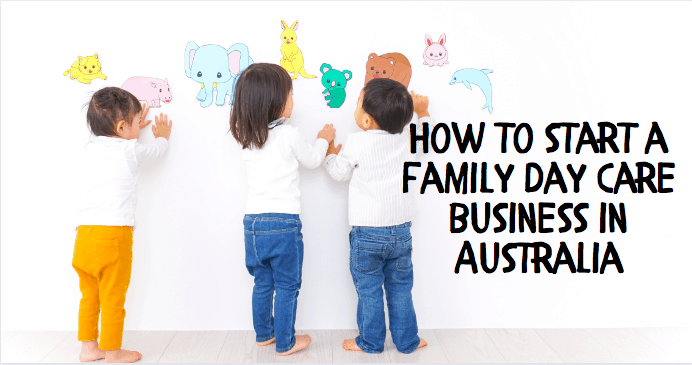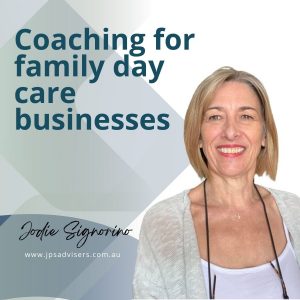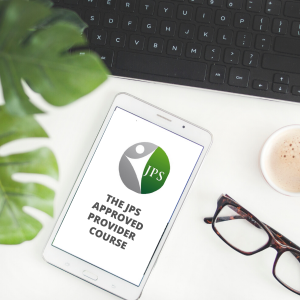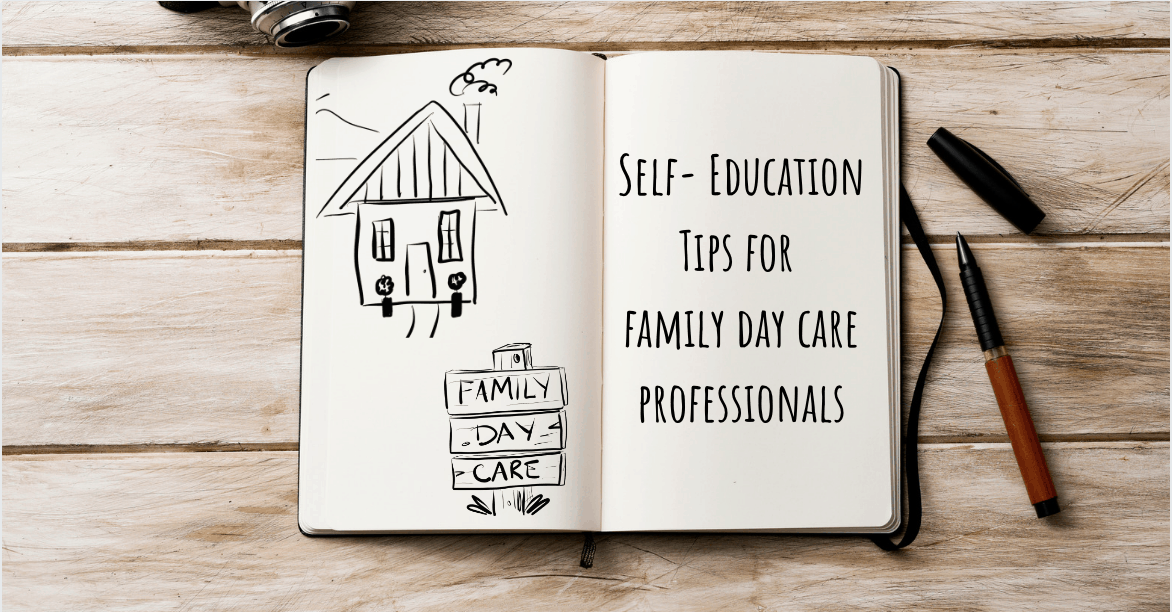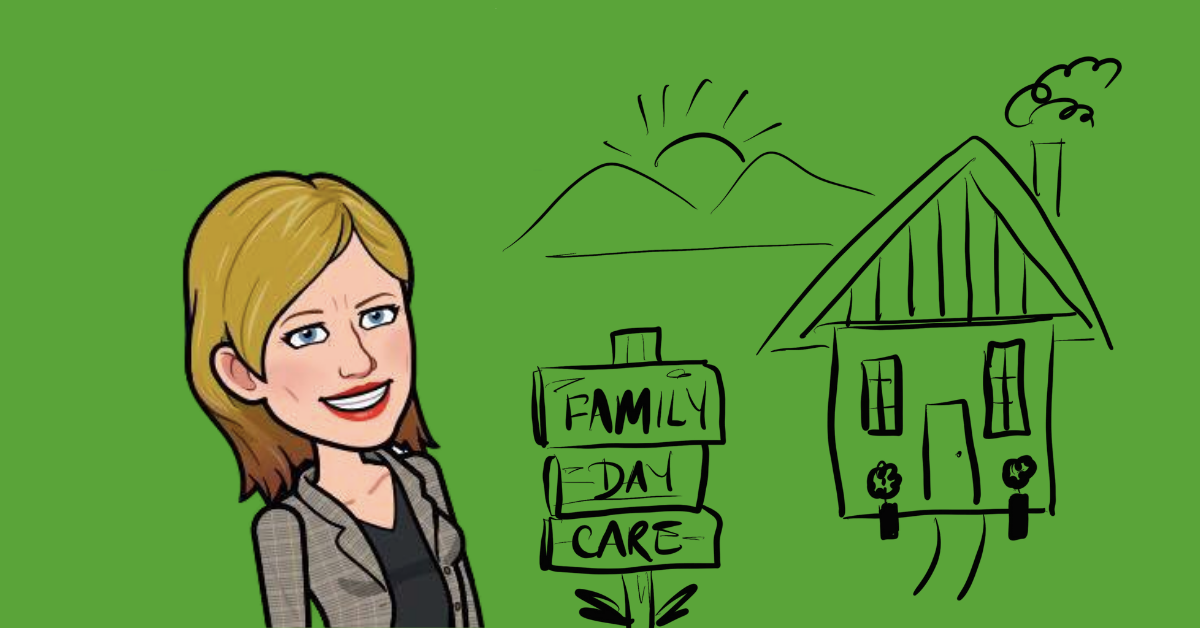How to start a family day care business in Australia
Family day care is becoming the preferred option for child care for many families, as the benefits of children being cared for in a home environment with a qualified professional become increasingly apparent. With tougher expectations implemented over the past few years to weed out dishonest or substandard operators and educators, the industry is now in need of quality approved providers, coordinators and educational leaders to manage the service, as well as professional educators to educate and care for children in their home.
The aim of this article is to give you an overview of how to start a family day care business in Australia. We will look at why family day care is becoming an attractive option for families, and the opportunities this provides for aspiring business owners and managers, as well as early childhood professionals. We will also discuss the process of setting up your business and the support and resources available to help you if you want to work from home, or if you want to contribute the quality of the sector.
Family Day Care In Australia
Family day care is a government approved and funded child care option for families. It offers children the opportunity to be cared for in a safe and hygienic home environment, by qualified educators.
Over the past few years, family day care has gone through one of the biggest shakeups seen in Australian child care history. While fraudulent operators tarnished the reputation of family day care, tougher legislation introduced by the government is giving peace of mind to families and increasing the expectations on providers who must be compliant and meet the National Quality Standards or they will be sanctioned or shut down.
Education and care services are regulated by both federal and state government departments that hold the power to prosecute and sanction services and individuals. From the onset, you must be aware that under the Education and Care Services National Quality Framework, there are fines up to $10,000 for each non-compliant incident, including if a child is not protected from harm or hazards or not adequately supervised.
Having said that, whether you are an approved provider (the owner of the service) or an educator (who is contracted to the service) running a family day care business can help you to build a successful career and provide you with financial security.
It is also one of the most rewarding professions you can do from your home, surrounded by your own family. So, if you are committed to understanding the governance surrounding family day care, and you are excited by the prospect of running your own business, then I’d like to invite you to read on so you can consider starting your own family day care business in Australia.
Why is the demand for family day care growing?
There is no doubt that family day care is growing to be a popular choice for Australian families. Regular day care centres have long waiting lists, and no room for flexibility to work around schedules of the families the same way family day care can.
Additionally, many families are seeing the benefits of moving their children away from institutionalised care with large groups of children to a more flexible, nurturing home environment with small multi-age groups of children. Recent studies show parents prefer this model of care for their children.
So, if you have the qualifications and skills, then your community needs you!
Governance: The backbone of every family day care service
There is no doubt that the family day care sector has had to take measures to eliminate dodgy operators. For this reason, approved providers should choose educators from reputable training providers and develop strong governance to create and maintain processes to identify risks, rectify issues, and comply with legislation.
Each service is required by law to have a set of policies and procedures, which are customised to their service. Policies provide the framework and guidance from everything from emergency management, staffing, supervision and simply times for drop off and pick up.
Whether you are the approved provider or an educator, you must be familiar with and follow the policies and procedures set by the service, as well as the policies you develop yourself to operate your own business. (You can download done-for-you policies or policy templates here)
It is important for anyone considering a career in family day care to understand the vital role governance plays in running a compliant and safe business. To this end, all education and care services in Australia undergo a ratings assessment.
Australian Services can be rated as:
Excellent: Service promotes exceptional education and care, demonstrates sector leadership and is committed to continually improving (Awarded by ACECQA)
Exceeding National Quality Standard: Service goes beyond the requirements of the National Quality Standard in at least 4 of the 7 quality areas, with at least two of these being quality areas 1, 5, 6, or 7.
Meeting National Quality Standard: Service meets the National Quality Standard.
Service provides quality education and care in all 7 quality areas. (this should be our minimum operational standard)
Working Towards National Quality Standard: Services provides a safe education and care program. There are 1 or more areas identified for improvement.
Significant Improvement required: Service does not meet 1 of the 7 quality areas or a section of the legislation and there is a significant risk to the safety, health and well being of children. The regulatory authority will take immediate action.
Preparing for an assessment of the program requires the development of a quality improvement plan (QIP), identifying your strengths and areas requiring improvement. Your QIP should be reflective of your service’s overall quality improvement strategy. Education and care services are assessed and rated by the state or territory regulatory authority. (To help you improve your ratings, I have developed online courses for both approved providers and educators)
While all this talk of governance and legislation can be scary, it is important to remember that they are there for a reason (keeping children safe), and are ultimately what will protect you and help you to build a successful and profitable family day care business.
For educators, I wrote the JPS Survival Guide for Australian Family Day Care Educators that breaks down the legislation so it is easier to follow and implement. The guide is downloadable and will give you a great insight to what is expected of you as a family day care educator.
Why is family day care a great industry to work in?
You get to:
- Work from home around your family
- Manage your own business
- Be a part of a growing industry where demand is high
- Impact future generations by being a part of the education revolution (moving children away from institutionalised care and not limit learning to the walls of a classroom)
- Make a positive impact on the lives of children
- Support families who need to work or study
Which role in family day care is the best fit for you?
Within family day care, there are a number of roles you can choose from to suit your skills, knowledge, and experience. The main opportunities are:
Business management: These are the approved providers/nominated supervisors who own and manage the service.
Coordinators: Manage, monitor, and support the educators to ensure they are compliant.
Educational Leaders: Part of the leadership team who make sure the educator program fits the needs of each child. They guide and direct the educational program across the service.
Educators: Work from their home as educators with children enrolled in the service
Educator Assistants: Can be part of the educator’s family. They don’t have to have a qualification but need CRP and First Aid training, as well as police and Working With Children checks.
Let’s take a more indepth look at each of these opportunities, and discuss how you can get started in the role you are most suited to.
Approved Providers and Nominated Supervisors
Who are they? A person or legal entity, such as a partnership or company, who holds the approval to operate an approved education and care service.
What is their role in the service? Approved providers and nominated supervisors are required to ensure each educator, educator assistant, coordinator and educational leader are meeting the minimum requirements of the Education and Care Services National Quality Law 2010, Education and Care Services National Regulations 2011, Education and Care Services National Quality Standards, Approved Learning Frameworks and the Family Assistance Law 2010 by:
- Communicating and monitoring the service’s statement of philosophy
- Providing policies and procedures to stakeholders
- Recruiting educators and staff
- Monitoring and mentoring
- Continual Improvement
- Conducting themselves within the service’s code of conduct at all times
- Monitoring educators’ homes for safety and compliance and provide training and support in all aspects of education and care service delivery
- Implementing sound recruitment and eligibility assessment of educators, residents and staff
- Monitoring and ensuring educators credentials such as CPR remain current at all times
- Ensuring children’s files remain current and are communicated with the educator at all times
- Verifying claims for Child Care Subsidy prior to submission
- Ensuring children’s educational programs are developed in accordance with Approved Learning Framework/s
- Monitoring other documentation and records for compliance and quality control
- Being available by telephone at all times children are registered to be in care
- Developing, implementing and encouraging ongoing communication between families and educators
- Providing opportunities for stakeholders to contribute to policy review, suggestions for service operation and improvement
- Ensuring stakeholders are informed of changes in recommended/best practice
- Developing performance management and termination processes
- Welcoming and supporting students and volunteers
- Undertaking a safety and performance review within 24 hours of a serious incident
- Enrolling and placing children in homes, with educators that meet their individual needs
- Managing the fees and payments to educators
- Be answerable to both state and federal regulatory authorities
- Responsible for the children, staff, educators, families and of course children ‘The entire service’
How do I become an approved provider?
There are three stages to becoming an approved provider. This short video explains each stage:
WATCH THIS VIDEO TO FIND OUT MORE.
Resources to help:
External Resources:
Australian Children’s Education & Care Quality Authority: https://www.acecqa.gov.au/
National Quality Framework https://www.acecqa.gov.au/national-quality-framework
JPS Resources:
If you want to become an approved provider, I have put together an online course to help you navigate the application processes. Check it out here.
Check out the JPS website and the JPS Family Day Care Advisers You Tube channel for heaps of resources, tips and advice.
Coordinators
Who are they? Employed or contracted by the service and hold a minimum Diploma of Early Childhood Education and Care (or equivalent)
What is their role in the service? Coordinators are responsible for ensuring they monitor and assist educators to meet the minimum requirements of the Education and Care Services National Regulations by:
- Monitoring the service’s statement of philosophy is being implemented
- Using policies to guide decisions, processes and behaviours
- Using the National Quality Standards for guidance and assist educators to development and implement a quality improvement plan
- Conducting themselves within the service’s code of conduct at all times
- Monitoring educators’ homes for safety and compliance
- Monitoring and ensuring educators’ credentials remain current at all times
- Monitoring children’s files to ensure currency
- Monitoring other documentation and records for compliance and quality control
- Supporting ongoing communication between educators and families
- Welcoming and supporting students and volunteers
- Provide leadership and guidance to educators and report directly to the nominated supervisor
How do I become a coordinator?
Coordinators are employed or contracted by the service and hold (at least) a Diploma of Early Childhood Education and Care
Resources:
Check out the JPS website and the JPS Family Day Care Advisers You Tube channel for heaps of resources, tips and advice.
Educational Leaders
Who are they? The educational leader is part of the leadership team of the service
What is their role in the service? Educational leaders are responsible to ensure they monitor and assist educators to develop an educational program for each child that is based on individual needs, strengths, abilities and interests. Documentation must reflect children’s learning over time and the program meets the approved learning frameworks by:
- Implementing the service’s statement of philosophy ensuring the philosophy is reflected in the educational program
- Using approved learning frameworks to guide program development
- Using the National Quality Standards for guidance, and assist educators to continually improve their professional practice
- Conducting themselves within the service’s code of conduct at all times
- Monitoring children’s educational documentation for evidence of the 5 learning outcomes
- Supporting ongoing communication between educators and families
- Welcoming and supporting students and volunteers
How do I become an educational leader?
Educational leaders are employed or contracted by the service and hold ‘relevant’ qualifications and skills to guide and assess the educational program.
Check out the JPS website and the JPS Family Day Care Advisers You Tube channel for heaps of resources, tips and advice.
Educator
Who are they? An educator is an individual who holds (or is working toward) a minimum qualification of Certificate III in Early Childhood Education and Care (or equivalent), registered with an approved family day care service.
Most family day care educators are contracted to an approved family day care service provider (sometimes referred to as a “scheme of agency”), although some educators may enter into an employment arrangement. An agreement or contract with an approved service should include mutual decisions regarding employment or contract conditions, such as hours and days of operation, remuneration or payments, grievance procedures, and matters to consider if terminating the contract.
The service you register with would be obligated to provide you with policies and procedures to ensure you deliver your education and care program within related legislation and the service’s statement of philosophy. Your service will be responsible for providing you with current training or support to ensure you meet the minimum standards of the Education and Care Services National Regulations.
What is their role in the service? Educators are required to develop and deliver an education and care program to children under 12 years of age that meets the Education and Care Services National Law, The Education and Care Regulations, The National Quality Standards and Approved Learning Frameworks, from their home (or venue) by:
- Implementing the service’s statement of philosophy
- Complying with policies and procedures
- Ensuring children’s health and safety at all times
- Ensuring accredited training and certifications are current
- Developing the educational program to support children’s overall learning and well being Maintaining accurate records ensuring confidentiality
- Utilising the National Quality Standards for reflection and service improvement
- Participating in any the service’s quality improvement program
- Collaborating with stakeholders
- Conducting themselves within the service’s code of conduct
How do I become a family day care educator?
If you are looking to start your own home based child care business, answering these questions will help you to determine if you are eligible or suited to becoming a family day care educator.
Do you have the right to work in Australia ?
Are you over the age of 18 years?
Do you have, or are prepared to gain, the following:
- Certificate III in Early Childhood Education and Care?
- A current working with children safety check?
- A current police check?
- A current Anaphylaxis Management Certificate?
- A current Emergency Asthma Management Certificate?
- First Aid qualifications?
- Knowledge of child protection laws and child safe standards?
- Permission from your property owner to work from your residence?
There are a number of places to search in your local region or area to locate a service. A good place to start is the Australian Children’s Education and Care Quality Authority (ACECQA) website to access the register of approved education and care services. A service with a minimum rating of ‘Meeting’ the National Quality Standards indicates they are complying with the education and care legislation.
A quality service will ensure you meet the educator eligibility criteria and will undertake an assessment of your home. They will determine the suitability of other residents in your home, and may require you to carry out changes or rectifications to your home prior to approving you as an educator. A quality service will also conduct reference checks with your previous employers.
Resources to help
The Business of a Family Day Care Educator online course: If you are a qualified educator you already know how to take care of children, and you were probably shown how to manage administrative tasks while undertaking your qualification. However, to be successful in family day care, you also need to know how to manage a business. The Business of a Family Day Care Educator online course can be done at your own pace, and covers:
- Business planning: The what, who and how of what you do.
- Policy development: How are YOU going to make sure everyone is on the same page?
- Financial management: How much money do you need to turnover? What are your financial obligations and hidden costs?
- Marketing and branding: How are you different or how do you stand out in your sector?
- Succession planning: Plan and implement your long-term goals. What is next for you or your business?
- Risk management: Stay and keep everyone safe.
The course includes a business plan, as well as budgeting and cash flow templates. It is a great starting point for you if you are wanting to start a business as a family day care educator, or if you already are an educator and are ready to take your business to the next level. Find out more about the course here.
Educator Assistants
Who are they? An educator assistant is an individual who holds (or is working toward) a minimum qualification of Certificate III in Early Childhood Education and Care, and is registered with an approved family day care service.
What is their role in the service? Educator assistants are required to assist and support the educator to develop and deliver an education and care program to children under 12 years of age that meets the Education and Care Services National Law 2010, The Education and Care Regulations 2011, The National Quality Standards and Approved Learning Frameworks, from the educator’s home (or venue) by:
- Implementing the service’s statement of philosophy
- Complying with policies and procedures
- Ensuring children’s health and safety at all times
- Ensuring accredited training and certifications are current
- Informing and supporting the delivery of the educational program
- Maintaining accurate records ensuring confidentiality
- Participating in any the service’s quality improvement program
- Collaborating with stakeholders
- Conducting themselves within the service’s code of conduct
Educator assistants can be recruited to assist with:
- Supervising children remaining at the educator’s home whilst they transport a child to or from school
- Supporting the educator to care for child requiring additional supports
- Meal preparation
- Excursions or outings
- Assisting in the development of the educational program
How do I become a family day care educator assistant?
Educator assistants MUST hold the required credentials prior to being left alone with enrolled children. You must provide copies to the service for the approved provider to approve an educator assistant and must include:
- Certificate III in Early Childhood Education and Care (can be working towards acquiring in some states)
- Proof of age – must be 18 years or over
- Current police check
- Current working with children check Awareness of child protection law
In addition, your relevant work experience and your ability to support the educational program must be considered.
Check out the JPS website and the JPS Family Day Care Advisers You Tube channel for heaps of resources, tips and advice.
Okay! Now that you have a good understanding of how to start a family day care business is Australia, I want to let you know how I can help you take the next step.
About JPS Family Day Care Advisers
Who are they? JPS Education and Care Advisers are specialists in early childhood education and care. The founder of JPS, Jodie Signorino (me), is a recognised expert in family day care governance, service delivery, and quality improvement. I have over 30 years’ experience in service delivery, management, governance, training, and consultation.
What do they do? JPS Advisers provides coaching, training, support, advice and resources for family day care services and educators. They work with family day care services to identify, rectify, and comply with state and federal legislation. They also guide the professional development of service providers and educators
In summary
Family day care is becoming a preferred option for child care for many families, as the benefits of children being cared for in a home environment with a qualified professional become increasingly apparent. With tougher legislation introduced to weed out dishonest operators, the industry is now in need of professionals to run and lead a service, as well as qualified educators to care for children in their home.
If you are passionate about giving children the right start, to play a role in shaping our future generation, and to help make those first memories beautiful and cherished, then it’s time for you to reach your potential and build a business that is going to make a difference.
Subscribe to our newsletter to stay in touch and to receive free templates and resources to help you build your family day care business.

